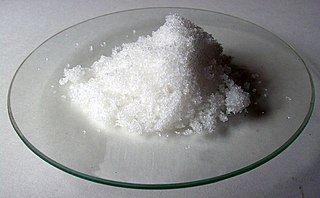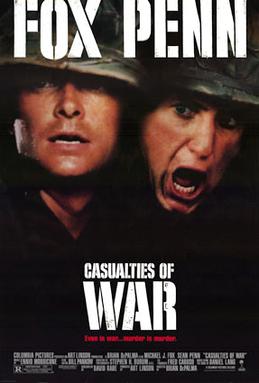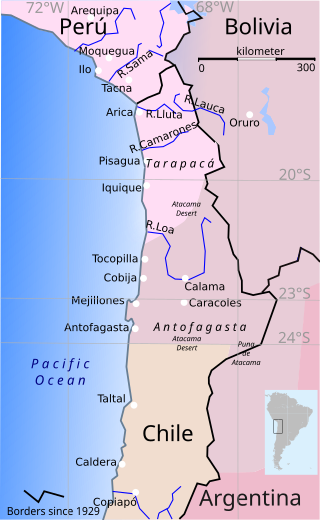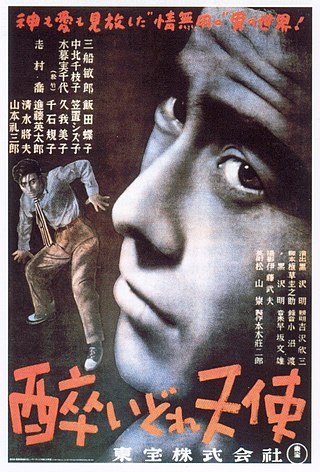
The cinema of the Soviet Union includes films produced by the constituent republics of the Soviet Union reflecting elements of their pre-Soviet culture, language and history, albeit they were all regulated by the central government in Moscow. Most prolific in their republican films, after the Russian Soviet Federative Socialist Republic, were Armenia, Azerbaijan, Georgia, Ukraine, and, to a lesser degree, Lithuania, Belarus and Moldavia. At the same time, the nation's film industry, which was fully nationalized throughout most of the country's history, was guided by philosophies and laws propounded by the monopoly Soviet Communist Party which introduced a new view on the cinema, socialist realism, which was different from the one before or after the existence of the Soviet Union.

Sodium nitrate is the chemical compound with the formula NaNO
3. This alkali metal nitrate salt is also known as Chile saltpeter to distinguish it from ordinary saltpeter, potassium nitrate. The mineral form is also known as nitratine, nitratite or soda niter.

Casualties of War is a 1989 American war drama film directed by Brian De Palma and written by David Rabe, based primarily on an article written by Daniel Lang for The New Yorker in 1969, which was later published as a book. The film stars Michael J. Fox and Sean Penn and is based on the events of the 1966 incident on Hill 192 during the Vietnam War, in which a Vietnamese woman was kidnapped from her village by a squad of American soldiers, who raped and murdered her. For the film, all names and some details of the true story were altered.

The War of the Pacific, also known by multiple other names, was a war between Chile and a Bolivian–Peruvian alliance from 1879 to 1884. Fought over Chilean claims on coastal Bolivian territory in the Atacama Desert, the war ended with victory for Chile, which gained a significant amount of resource-rich territory from Peru and Bolivia.

Niter or nitre is the mineral form of potassium nitrate, KNO3. It is a soft, white, highly soluble mineral found primarily in arid climates or cave deposits.
Prior restraint is censorship imposed, usually by a government or institution, on expression, that prohibits particular instances of expression. It is in contrast to censorship that establishes general subject matter restrictions and reviews a particular instance of expression only after the expression has taken place.

Drunken Angel is a 1948 Japanese yakuza noir film directed and co-written by Akira Kurosawa. It is notable for being the first of sixteen film collaborations between director Kurosawa and actor Toshiro Mifune.

Caliche is a soil accumulation of soluble calcium carbonate at depth, where it precipitates and binds other materials—such as gravel, sand, clay, and silt. It occurs worldwide, in aridisol and mollisol soil orders—generally in arid or semiarid regions, including in central and western Australia, in the Kalahari Desert, in the High Plains of the western United States, in the Sonoran Desert, Chihuahuan Desert and Mojave Desert of North America, and in eastern Saudi Arabia at Al-Hasa. Caliche is also known as calcrete or kankar. It belongs to the duricrusts. The term caliche is borrowed from Spanish and is originally from the Latin word calx, meaning lime.

Censorship in the Soviet Union was pervasive and strictly enforced.

Film censorship is the censorship of motion pictures, either through the excising of certain frames or scenes, or outright banning of films in their entirety. Film censorship typically occurs as a result of political or moral objections to a film's content; controversial content subject to censorship include the depiction of graphic violence, sexual situations, or racial themes. Censorship standards vary widely by country, and can vary within an individual country over time.

Sociedad Química y Minera de Chile (SQM) is a Chilean chemical company and a supplier of plant nutrients, iodine, lithium and industrial chemicals. It is the world's biggest lithium producer.
The Marusia massacre was the response of the Chilean government under president Arturo Alessandri to a strike by the workers of a saltpeter mine leading to over 500 dead, over ninety percent being strikers or their family members.

The British Board of Film Classification (BBFC) is a non-governmental organisation founded by the British film industry in 1912 and responsible for the national classification and censorship of films exhibited at cinemas and video works released on physical media within the United Kingdom. It has a statutory requirement to classify all video works released on VHS, DVD, Blu-ray, and, to a lesser extent, some video games under the Video Recordings Act 1984. The BBFC was also the designated regulator for the UK age-verification scheme, which was abandoned before being implemented.

Chilean cinema refers to all films produced in Chile or made by Chileans. It had its origins at the start of the 20th century with the first Chilean film screening in 1902 and the first Chilean feature film appearing in 1910. The oldest surviving feature is El Húsar de la Muerte (1925), and the last silent film was Patrullas de Avanzada (1931). The Chilean film industry struggled in the late 1940s and in the 1950s, despite some box-office successes such as El Diamante de Maharajá. The 1960s saw the development of the "New Chilean Cinema", with films like Three Sad Tigers (1968), Jackal of Nahueltoro (1969) and Valparaíso mi amor (1969). After the 1973 military coup, film production was low, with many filmmakers working in exile. It increased after the end of the Pinochet regime in 1989, with occasional critical and/or popular successes such as Johnny cien pesos (1993), Historias de Fútbol (1997) and Gringuito (1998).
USS Chestnut Hill (ID-2526) was a commercial tanker that served briefly with the United States Navy during World War I. The ship was ordered as Desdemona for British service but requisitioned by the United States Shipping Board (USSB) for U.S. service and renamed Chestnut Hill before completion. After commissioning and assignment to the Naval Overseas Transportation Service (NOTS) the ship served as an escort and fueling ship for fleets of U.S. submarine chasers crossing the Atlantic.
At various points in South Korea's history, the social influence of film prompted the government to place strict regulations setting out guidelines that films must follow in order to be viewed by the public. There are two major periods where film censorship strongly impacted the growth of the film industry in South Korea: the period of colonial Korea under Japanese rule and the period of military dictatorship in the mid-twentieth century, when the film industry was heavily surveilled. During these two periods, filmmakers were barred from freely expressing their creativity, thoughts, and ideas, some believe these restrictions led to the decline of the film industry in South Korea.

Pulpería was the name given to company stores and dining facilities in parts of South America, notably in the industries that extracted sodium nitrate from caliche deposits between 1850 and 1930 in Northern Chile in the current regions of Tarapaca and Antofagasta. The term was used in the Spanish colonial period in South America.
Helvio Soto (1930–2001) was a Chilean filmmaker.

The María-Elena - Tocopilla line was the last operating nitrate railway in Chile, and the last operating section of a railway system that moved caliche ore to processing plants and nitrate to the port of Tocopilla. It was a magnet for rail fans before closing in August 2015 after severe rainfall damaged the tracks to the extent that the owner decided it was beyond economic repair.
José Arístides Manuel Secall Parada also known in the artistic world as Pepe Secall, was a Chilean actor and theater director. Until shortly before his death, he was active in film, television, and theater.













